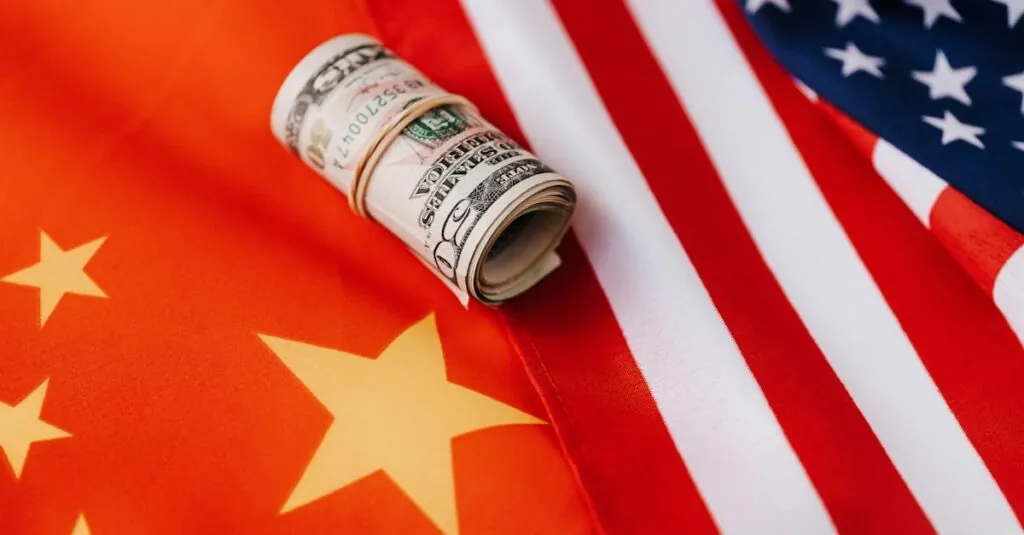Table of Contents
ToggleIn a world where alliances can change faster than a cat meme goes viral, understanding state relations is crucial. Countries are like social media influencers—one moment they’re besties, and the next, they’re throwing shade. The dynamics of international relations are shifting, and keeping up can feel like trying to catch a greased pig at a county fair.
These shifts can impact everything from trade agreements to military alliances. As nations reassess their priorities and partnerships, the ripple effects are felt worldwide. Whether it’s a new trade deal or a diplomatic spat, the landscape of global politics is anything but boring. Buckle up and get ready to dive into the fascinating world of state relations and discover how these changes could affect us all.
Understanding State Relations Shift
State relations shift during geopolitical transformations. These shifts influence alliances, trade, and security dynamics among countries.
Definition and Significance
State relations shift refers to changes in diplomatic, economic, and military interactions among nations. Such shifts occur rapidly, impacting global stability and cooperation. Understanding these dynamics helps policymakers anticipate potential threats and opportunities. Adjustments to alliances can influence international trade agreements significantly. Proactive analysis supports countries in maintaining strategic advantages. These shifts reveal the fragility of long-standing friendships between governments. Recognizing the significance aids in navigating an unpredictable global landscape.
Historical Context
Historical events illustrate the concept of state relations shift. The Cold War marked a prominent period of shifting alliances, with countries aligning based on ideology rather than geography. After the USSR’s collapse, many nations reevaluated partnerships, showing how political landscapes can alter rapidly. Trade agreements like NAFTA also emerged from shifting economic interests. Following the events of September 11, 2001, relations between countries transformed significantly as security became a priority. Examining these historical shifts provides insights into current and future trends in international relations.
Factors Influencing State Relations Shift
State relations experience shifts due to various compelling factors that impact global interactions.
Economic Changes
Economic changes frequently shape state relations. Fluctuations in trade balances affect alliances and cooperation. A downturn in one nation’s economy may prompt it to seek new partnerships for survival. Conversely, growth in technology and innovation fosters stronger ties between countries that lead in these sectors. Countries with significant resources, such as oil, often leverage their wealth to influence foreign policy. Additionally, tariffs, sanctions, and trade agreements play pivotal roles in determining the nature of state interactions. Nations experiencing economic crises might realign diplomatically to seek new markets or foreign aid, enhancing their geopolitical standing.
Political Dynamics
Political dynamics also significantly influence state relations. Shifts in leadership often alter foreign policy objectives, leading to new alliances or the dissolution of existing ones. National interests drive these changes, as governments prioritize security, ideology, and territorial integrity. The rise of populist movements can challenge traditional alliances, prompting nations to reassess their affiliations. Global issues, such as climate change and terrorism, enhance multilateral cooperation when countries collaborate to address shared threats. In contrast, ideological differences, such as democracy versus authoritarianism, may drive a wedge between states, leading to tensions and conflicts.
Case Studies on State Relations Shift
Changes in state relations can significantly affect international interactions. Examining specific cases reveals the broader implications of these shifts.
Impact on Global Alliances
State relations shifts directly influence global alliances. Allies may find themselves reassessing partnerships due to evolving security needs or economic considerations. For instance, the realignment of U.S. relations with NATO partners demonstrates how external threats can prompt renewed commitments. Nations often engage in strategic collaborations to address shared challenges. The recent rapprochement between China and Russia showcases the formation of new alliances amid rising tensions with the West. These relationships not only reshape existing alliances but also create opportunities for states to redefine their influence on the global stage.
Regional Implications
Regional dynamics feel the impact of state relations shifts strongly. Changes in alliances can destabilize existing power balances. In the Middle East, for example, normalization agreements between Israel and several Arab nations illustrate how shifting state relations can alter regional interactions. Countries adjust foreign policy strategies to navigate these developments. In Asia, the increasing cooperation between India and the United States reflects a mutual response to China’s growing assertiveness. Such interactions can lead to increased tensions or foster new diplomatic initiatives, highlighting the complex interplay of regional politics.
Future Trends in State Relations Shift
State relations continue to adapt as new trends emerge. Understanding these trends proves crucial for anticipating shifts in international dynamics.
Technology and Diplomacy
Digital platforms shape modern diplomacy by providing instant communication channels. Nations increasingly utilize technology for negotiations and public discourse. Cybersecurity concerns also emerge, compelling states to collaborate on safeguarding information. Virtual summits and conferences enhance interactions between global leaders, allowing for swift decision-making. Additionally, social media plays a role in shaping public perception, influencing how states engage with one another. States embracing technological advancements may gain strategic advantages in diplomacy.
Emerging Powers
Emerging powers significantly transform the global order. Nations like India, Brazil, and South Africa assert themselves on the world stage, shifting traditional power dynamics. These countries often prioritize regional partnerships and multilateral cooperation, seeking to enhance their influence. Economic growth in emerging markets leads to increased investment in diplomatic initiatives. Emerging powers may align themselves based on shared values and mutual interests, driving new alliances. As these nations rise, they challenge established powers, reshaping global governance structures and prompting a reevaluation of international relations.
The shifting landscape of state relations is a testament to the fluidity of international politics. As nations navigate economic fluctuations and political changes they must remain vigilant in understanding the implications of these dynamics. The interplay of historical context and contemporary challenges shapes the future of alliances and partnerships.
Policymakers are tasked with anticipating shifts that could redefine global stability. The rise of new powers and the influence of technology further complicate these interactions. Staying informed and adaptable is crucial for nations aiming to maintain strategic advantages in an ever-evolving world.







